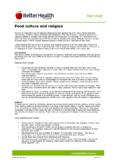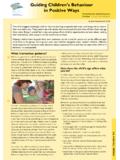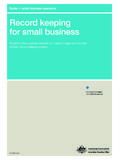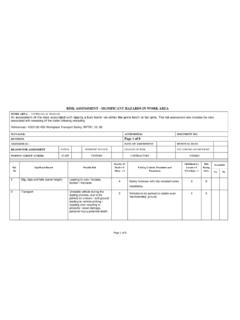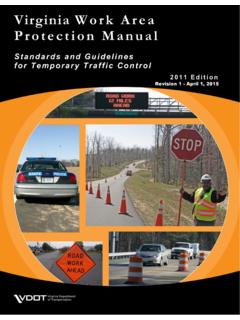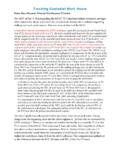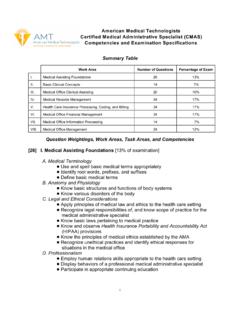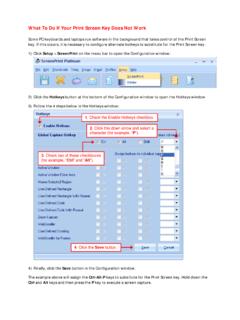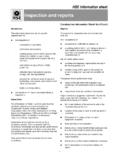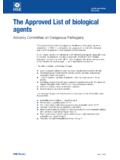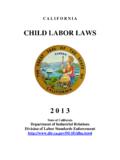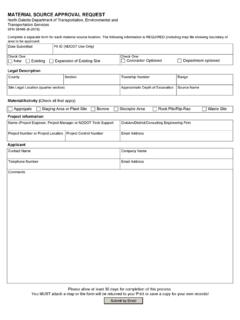Transcription of Preamble - Imagine Education
1 Contact ECA: 1800 356 900 (freecall). E: F: (02) 6242 1818. T: (02) 6242 1800. 1800 356 900 (freecall). PO Box 86, Deakin West, ACT 2600. Early Childhood Australia books and resources. Discover our wide range of quality-assured Everyday Learning Series Shop from our quality-assured catalogue. Research in Practice Series Keep up to date with the latest news and events. Australasian Journal of Early Childhood Supporting Best Practice web directory. Every Child magazine Browse hundreds of articles in the comprehensive Subscribe to our quarterly publications: Subscribe to our free ECA WebWatch e-newsletter. Become a member or receive an information pack. for great online resources: Contact Early Childhood Australia: Visit is an essential professional responsibility. or taking action in the presence of unethical practice of children is paramount. Therefore speaking out In this Code of Ethics, the protection and wellbeing lifelong learning, reflective practice, researching with children, This Code is not intended to, and could not possibly provide, new methods of documenting and assessing children's learning, easy answers, formulae, or prescriptive solutions for the Preamble and collaborating across traditional service and discipline complex issues early childhood professionals face in their work.
2 Boundaries are examples of contemporary requirements for As an aspirational document, it does provide a basis for critical early childhood professionals. reflection, a guide for professional behaviour, and principles to Wise moral decisions will always acknowledge our inform individual and collective decision making. interdependency; our moral choices are ours alone, but Inherent in this Code is the understanding that children they bind us all to those who will be affected by them. learn within their family and community groups, bringing The following values and processes are considered central to rich knowledge, and a diversity of experiences and identities the Code of Ethics: So deciding for yourself what's right or wrong does not to their learning. Sociocultural theories have moved our mean deciding in isolation' (Mackay, 2004, p. 242). respect courage focus beyond individual children's development to highlight democracy inclusivity the importance of social contexts to children's learning honesty social responsiveness This Code of Ethics provides a framework for reflection about and development.
3 As children participate and learn in their communities, they in turn influence those communities. integrity cultural responsiveness the ethical responsibilities of early childhood professionals. Following a national process of consultation, principles emerged Early childhood communities ought to be spaces and places justice Education which are indicative of the values we share as early childhood where practices such as responsive listening and dialogue can professionals in Australia. The Code is intended for use by all build connections and relationships which sustain and advance early childhood professionals who work with or on behalf of individual and collective wellbeing. children and families in early childhood settings. Definitions Early childhood professionals have a strong history of advocating In developing this second edition of Early Childhood Australia's on behalf of children and their families. This revised Code In this Code of Ethics, for the purposes of this document, Code of Ethics, the national working party was mindful of builds on this tradition by making explicit the ethical these terms are given the following meanings: changes in the knowledge base of early childhood that have responsibility to take action in the face of injustice and when Children occurred over the last decade.
4 New research has allowed unethical practice occurs. People between the ages of birth and eight years. significant changes in understandings to emerge that reposition Families children as citizens with entitlements and rights. Increasingly, The people who have significant care responsibilities for and/or kinship children are seen as competent and capable and able to relationships with the child. participate in the negotiation of their learning and social Early childhood professional experiences. Additionally, societal and environmental changes A person who works with or on behalf of children and families in early at the local, national and global levels impact on children and childhood settings. families with consequent implications for our work. Communities Groups of people who identify as having shared values and intentions. In recognition of the impact of globalisation and global These groups are recognised as complex, being simultaneously connected sustainability, this revised Code identifies ethical responsibilities by commonality and diversity.
5 To work with children and families in order to address global Employer issues locally. An individual or organisation which employs early childhood professionals. Just as the world has changed for children and families, so it has Student changed for professionals who work with them. The notion of A person undertaking study at a secondary or tertiary institution. Contact ECA: 1800 356 900 (freecall). E: F: (02) 6242 1818. T: (02) 6242 1800. 1800 356 900 (freecall). PO Box 86, Deakin West, ACT 2600. Early Childhood Australia books and resources. Discover our wide range of quality-assured Everyday Learning Series Shop from our quality-assured catalogue. Research in Practice Series Keep up to date with the latest news and events. Australasian Journal of Early Childhood Supporting Best Practice web directory. Every Child magazine Browse hundreds of articles in the comprehensive Subscribe to our quarterly publications: Subscribe to our free ECA WebWatch e-newsletter.
6 Become a member or receive an information pack. for great online resources: Contact Early Childhood Australia: Visit is an essential professional responsibility. or taking action in the presence of unethical practice of children is paramount. Therefore speaking out In this Code of Ethics, the protection and wellbeing Preamble lifelong learning, reflective practice, researching with children, This Code is not intended to, and could not possibly provide, new methods of documenting and assessing children's learning, easy answers, formulae, or prescriptive solutions for the and collaborating across traditional service and discipline complex issues early childhood professionals face in their work. boundaries are examples of contemporary requirements for As an aspirational document, it does provide a basis for critical early childhood professionals. reflection, a guide for professional behaviour, and principles to Wise moral decisions will always acknowledge our inform individual and collective decision making.
7 Interdependency; our moral choices are ours alone, but Inherent in this Code is the understanding that children they bind us all to those who will be affected by them. learn within their family and community groups, bringing The following values and processes are considered central to rich knowledge, and a diversity of experiences and identities the Code of Ethics: So deciding for yourself what's right or wrong does not to their learning. Sociocultural theories have moved our mean deciding in isolation' (Mackay, 2004, p. 242). respect courage focus beyond individual children's development to highlight democracy inclusivity the importance of social contexts to children's learning honesty social responsiveness This Code of Ethics provides a framework for reflection about and development. As children participate and learn in their communities, they in turn influence those communities. integrity cultural responsiveness the ethical responsibilities of early childhood professionals.
8 Following a national process of consultation, principles emerged Early childhood communities ought to be spaces and places justice Education which are indicative of the values we share as early childhood where practices such as responsive listening and dialogue can professionals in Australia. The Code is intended for use by all build connections and relationships which sustain and advance early childhood professionals who work with or on behalf of individual and collective wellbeing. children and families in early childhood settings. Definitions Early childhood professionals have a strong history of advocating In developing this second edition of Early Childhood Australia's on behalf of children and their families. This revised Code In this Code of Ethics, for the purposes of this document, Code of Ethics, the national working party was mindful of builds on this tradition by making explicit the ethical these terms are given the following meanings: changes in the knowledge base of early childhood that have responsibility to take action in the face of injustice and when Children occurred over the last decade.
9 New research has allowed unethical practice occurs. People between the ages of birth and eight years. significant changes in understandings to emerge that reposition Families children as citizens with entitlements and rights. Increasingly, The people who have significant care responsibilities for and/or kinship children are seen as competent and capable and able to relationships with the child. participate in the negotiation of their learning and social Early childhood professional experiences. Additionally, societal and environmental changes A person who works with or on behalf of children and families in early at the local, national and global levels impact on children and childhood settings. families with consequent implications for our work. Communities Groups of people who identify as having shared values and intentions. In recognition of the impact of globalisation and global These groups are recognised as complex, being simultaneously connected sustainability, this revised Code identifies ethical responsibilities by commonality and diversity.
10 To work with children and families in order to address global Employer issues locally. An individual or organisation which employs early childhood professionals. Just as the world has changed for children and families, so it has Student changed for professionals who work with them. The notion of A person undertaking study at a secondary or tertiary institution. Code of Ethics II. In relation to families, I will: IV. In relation to communities, I will: 1. Listen to and learn from families, in order to acknowledge and 1. Learn about the communities that I work within and enact build upon their strengths and competencies, and support them curriculum programs which are responsive to those contexts in their role of nurturing children. and community priorities. In this Code of Ethics the protection and wellbeing 2. Assist each family to develop a sense of belonging and inclusion. 2. Connect with people, services and agencies within the communities that support children and families.

